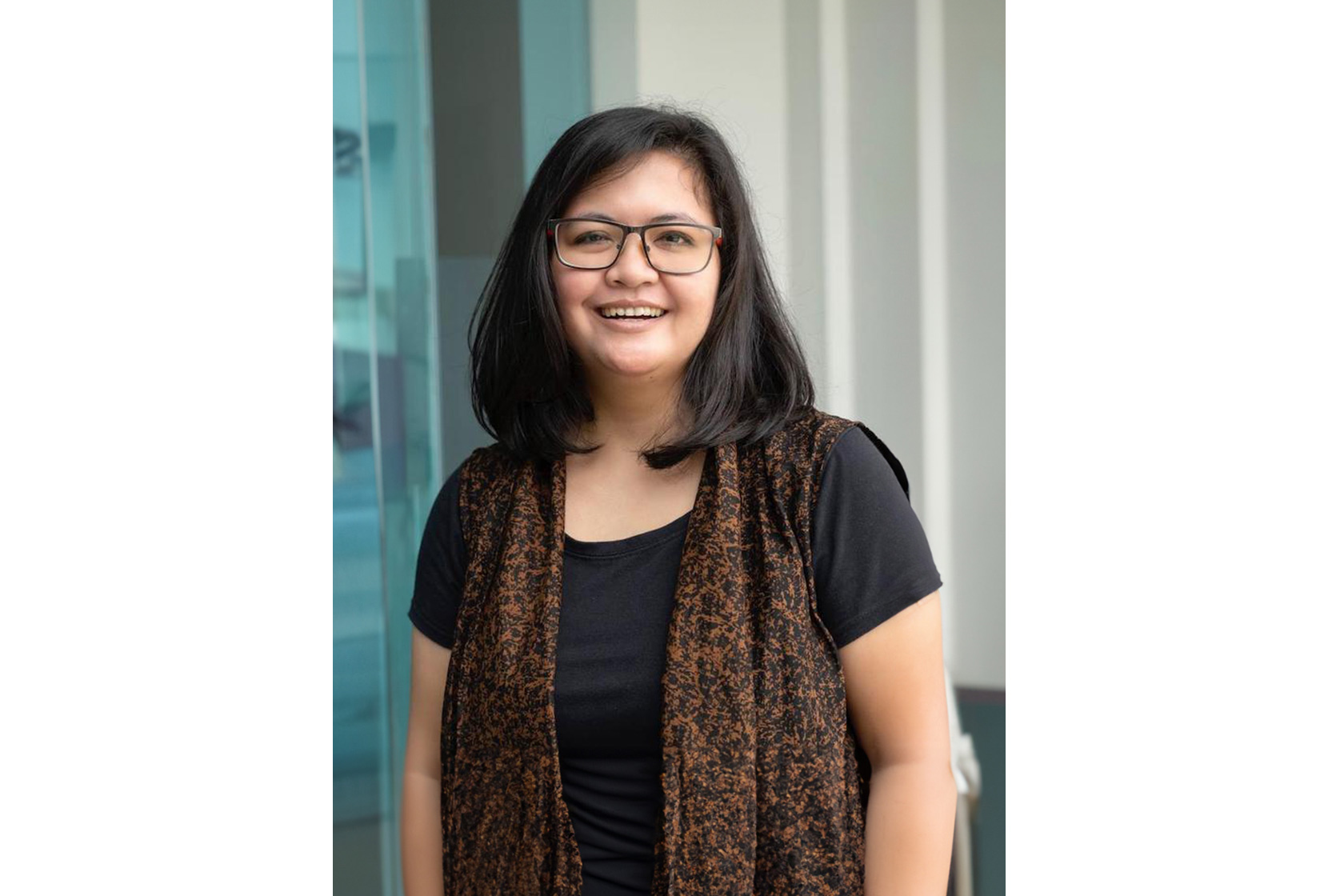Rita Triharyani is opening new opportunities for participation in agricultural communities in Central Java, and with her knowledge of value adding, is also creating jobs for women with disability.
The inspiration came while the disability inclusion specialist was participating in the Australia Awards Short Course on Sustainable Agri-Food Systems at The University of Adelaide in 2022.
"I discovered that 80% of farmers with disabilities reside in rural areas and encounter numerous obstacles in their farming activities,” Rita shared.
“Being a person with a disability myself, I am genuinely driven to assist them in becoming more empowered and improving their financial wellbeing."
Back home in Purworejo, Rita launched a program called "Light from the Blind - Accessible Agriculture Technology”.
Along with local individuals with disability, she developed a prototype for automatic irrigation for mushroom growers. The nipple watering system has been a breakthrough for growers, who face challenges when farming with traditional irrigation methods.
"I can confidently say this project has been successful and replicated in other villages. We now have six mushroom houses with impressive levels of productivity and positive outcomes," Rita said.
Enhancing the Value of Agricultural Products
Since 2017, Rita has worked at Yakkum Rehabilitation Center (Pusat Rehabilitasi YAKKUM, or Christian Foundation for Public Health). The Yogyakarta-based organisation has been running programs for people with disability in the areas of health, education, economic development and social empowerment since 1982.
Through this work, her interest in the agriculture sector has grown. She is also concerned with enhancing the value of agricultural products.
“I always stress the importance of showcasing our value in the final product to people with disabilities,” she explained.
“Let's not allow limitations to hinder us. Producing a substantial quantity of mushrooms is great, but what's the next step? We can elevate our product by creating something like a mushroom snack, increasing its market value and benefiting everyone.”
Rita gained valuable insights into improving agricultural products during her Short Course in Australia. One crucial lesson was being able to understand the food information and nutritional value just by examining the product’s package. She later applied this knowledge to enhance the packaging of farmers' products.
“I brought back examples from Australia to help people with disabilities understand effective packaging. For instance, highlighting nutritional facts, introducing ourselves, and emphasising our values,” Rita explained.
“By doing this, we not only become recognisable, but we also raise awareness in the market about the trustworthiness of products made by people with disabilities.”
Rita primarily works with women with disability and mothers of disabled children, offering them the opportunity to work in mushroom snack processing.
“I gained significant insights from my course on gender and social inclusion, which I now integrate into my activities to encourage more participation from individuals with disabilities, women, and the elderly, creating a more inclusive environment,” Rita emphasised.
Enhancing Inclusivity Through Collaboration
Rita is extending her efforts beyond the community, aiming to promote inclusivity among various groups and the public.
Following the completion of her Short Course, Rita initiated a small project focused on collaboration with other NGOs, stakeholders, and local residents.
It has expanded her reach from 26 individuals with disability to engage with 10 organisations for people with disability (OPDs) in Purworejo, each involved in specific livelihood activities.
The 10 OPDs also partner with The Ministry of National Development Planning/National Development Planning Agency (Bappenas) Inclusive Village program (Desa Inklusif). Their role is to assist the government in the Village Disability Group (Kelompok Disabilitas Desa), working alongside community organisations, such as the Family Welfare Movement (Pemberdayaan Kesejahteraan Keluarga), and officer cadets (Taruna).
Collaboratively, the groups replicated the nipple watering system prototype in more villages. This irrigation system has proven instrumental in supporting farmers with disability and fostering the growth of mushroom businesses by enabling home cultivation.
"In Australia, inclusivity is ingrained in daily life,” Rita reflected. “I aim to bring that cultural approach to Indonesia, spreading awareness that embracing inclusivity doesn't mean stepping back from current programs but rather involving and empowering people with disabilities."
Strengthening Collaboration with Australia
As the leader of the Inclusive Business Unit at Yakkum Rehabilitation Center, Rita oversees a dynamic business cycle and actively engages in various projects.
Before and during the Short Course, she served as the Project Manager for the Digital Health Hub Rehabilitation, a partnership with the School of Health and Biomedical Sciences at RMIT University in Melbourne.
This initiative involved online learning courses to provide holistic rehabilitation services for individuals with amputations and chronic pain. It covered topics such as digital biomechanical therapy, counseling, and an innovative prototype system aiding prosthetic and orthotic technicians in crafting swift and efficient sockets for amputees.
“Indonesia serves as the pilot project for this research, and through this collaboration, we aim to enhance the quality of rehabilitation for individuals with disabilities, particularly those with amputations and chronic pain,” Rita explained.
More recently, Rita and her team presented their accessible agriculture technology project to the Australian-Indonesian Partnership (AIP) PRISMA, a program supported by the governments of Australia and Indonesia which works with farmers who live below the poverty line.
Her team has now appointed PRISMA as a disability advisor, to provide assistance and mentoring to develop strategies for mainstreaming disability inclusion in the program.
“I am committed to uniting farmers and livestock breeders with disabilities, along with organisations for people with disability, alongside the private sector and the government,” Rita said.
“Our goal is to devise innovative strategies for mainstreaming disability inclusion, particularly in enhancing rural incomes, encompassing farmers with disabilities and the elderly across Indonesia.”


 Rita Triharyani Empowers Rural Women Through Inclusive Farming
Rita Triharyani Empowers Rural Women Through Inclusive Farming
